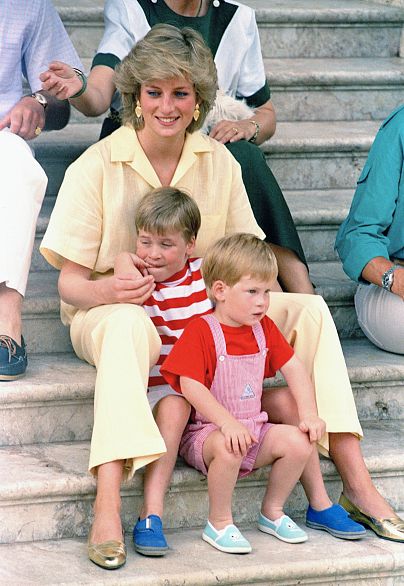Prince Harry's book is finally on UK bookshelves, causing more friction within the royal family. We asked an expert: how can families heal from rifts?
In an attempt to “own his story,” Prince Harry has given one of the most detailed insider accounts of life behind palace doors, bucking the royal family motto to “never complain, never explain”.
And his candidness – even before the publication of his book – has cost him.
Harry revealed in promotional interviews for his book that he’s not speaking to his brother, Prince William, or his father, King Charles III.
“They’ve shown absolutely no willingness to reconcile up until this point,” he said in an interview with British broadcaster ITV. “I would like to get my father back; I would like to have my brother back”.
Reconciliation in the public eye
For many who are currently estranged from a close family member, Harry’s statements might touch a nerve.
“One thing about the royal family is that the amount of external pressures and challenges and the disruption in their childhood, it has parallels in people’s lives,” said sociologist Karl Pillemer.
Pillemer, professor of human development at Cornell University in the United States, spoke with hundreds of people about their family estrangements for his book “Fault Lines: Fractured Families and How to Mend Them”.
While he admits that the case of Harry and William is “very unusual” due to the public nature of their family, Pillemer told Euronews Culture that his research suggests the brothers will reconcile.
“In relationships where there is some positive history of closeness, affection and attachment, like one imagines there might have been with Harry and William, reconciliation is more likely,” Pillemer said. “So that’s why I would be somewhat optimistic”.
The most persistent estrangements, Pillemer said, tend to result from an intense history of childhood family dysfunction, like harsh parenting or abuse.
Regardless of the reason for the estrangement, Pillemer said that nearly every person he spoke to for his book kept their family estrangement private, which is another reason the Harry/William rift baffles him.
“If you really wanted to reconcile, you would take this away from public pressure and scrutiny and really work on the relationship,” he said.
But working on a relationship, especially when contact has been completely cut off, is no easy task.
How to reunite after a family rift
If you’ve been dealing with estrangement from a close family member, you’re not alone.
Research by the UK charity Stand Alone found that more than a quarter of British people know someone who has cut off ties with a family member.
Here are some steps you can take if you’re considering making contact.
1. Ask yourself if you’re ready to reconcile. And trust your answer.
Reconciliation isn’t for everyone. If you’ve experienced abuse or trauma that you can’t reconcile, trust yourself and follow your gut.
“It’s a highly personal decision,” Pillemer said. “And there are some people for whom a relationship can be dangerous or psychologically damaging.”
But if you do think you’re ready to reconcile, if you’ve been thinking a lot about your family member and worrying that you’ll regret not reaching out to them, or if you’ve been practising what to say to them in your head, then maybe it’s time to consider taking the leap.
2. Examine your role in the rift and seek help if you need.
Often the origin of a family rift can be pinpointed to one specific event where the pressure cooker finally explodes, what Pillemer calls a “volcanic event”.
While generally the “volcanic event” is just the manifestation of more longstanding turmoil, it can be helpful to re-examine your role in the relationship and what responsibility you may have for the rift.
“Many people do find that there was something they could have done differently, and that allows for a meaningful apology or for a way to approach the person,” Pillemer says.
Don’t be afraid to ask for professional help with this. A counsellor or a therapist can help you sort out your thoughts and find a way forward.
3. Stop waiting for an apology and adjust your expectations.
If you’ve been wronged by a family member, the first thing you might want before moving forward is an apology.
While that works in the short-term, like right after a big fight, for longer-term estrangements, Pillemer says it’s all wrong.
“To reconcile, you have to give up the belief that you can impose your view of the past on the other person,” he said.
Instead of asking for an apology for every way you’ve been wronged, try adjusting your expectations of the person instead.
4. Set boundaries and be specific.
Finally, if you’re moving forward with your relationship be sure to establish clear, specific boundaries.
“Really decide on what rules are necessary and if those are broken, you may become estranged again,” Pillemer said.
Instead of a vague boundary like “My family member must be nicer to me,” try being more specific, with something like “My family member can never criticise my parenting”.
Let your family member know that these rules are firm and that you could cut off contact again if they are broken.
Maintaining a relationship with difficult family members is challenging, especially after a long estrangement.
But Pillemer says that of the 100 people he interviewed who had successfully reconciled with an estranged family member, not a single one regretted it.



















